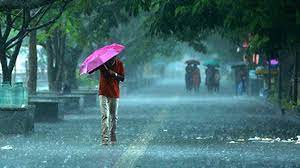IMD predicts India to see normal rains during monsoon season
By Lokmat English Desk | Published: April 11, 2023 03:28 PM2023-04-11T15:28:53+5:302023-04-11T15:29:25+5:30
India Meteorological Department (IMD) said that the country can expect normal rainfall during the southwest monsoon season as a ...

IMD predicts India to see normal rains during monsoon season
India Meteorological Department (IMD) said that the country can expect normal rainfall during the southwest monsoon season as a positive Indian Ocean Dipole (IOD) and a lower snow cover over the northern hemisphere are likely to counter the evolving El Nino conditions.
This forecast comes as a relief for the agricultural sector, which heavily relies on monsoon rains for crop production. India to see normal rainfall during the southwest monsoon season (from June to September). It is likely to be 96 per cent (with an error margin of 5 per cent) of the long-period average of roughly 87 cm, M Ravichandran, Secretary, Ministry of Earth Sciences said.
There is a 67-per cent probability of normal to above-normal rainfall, said M Mohapatra, Director General of Meteorology, IMD. He said the snow-covered area over the northern hemisphere and Eurasia was below normal from December 2022 to March 2023.
If at all there is any adverse impact due to the evolving El Nino conditions during the monsoon season, it is likely to be countered by the favourable impact of a positive IOD and the lower snow cover over the northern hemisphere, Mohapatra said. Mohapatra said normal to below-normal rainfall is predicted over parts of northwest India, west-central and northeast regions during the southwest monsoon season.
Normal rainfall is likely over many parts of the peninsular region, adjoining the east-central, east, northeast areas and some parts of northwest India, he said.
Unseasonal rains and hailstorms in March damaged rabi crops in large parts of the country, causing losses to thousands of farmers. The government, however, said wheat production was not impacted due to the unseasonal rains. In March this year, the government said the export ban on wheat will continue as long as the country does not feel comfortable with the domestic supplies to meet its food security needs.
Open in app